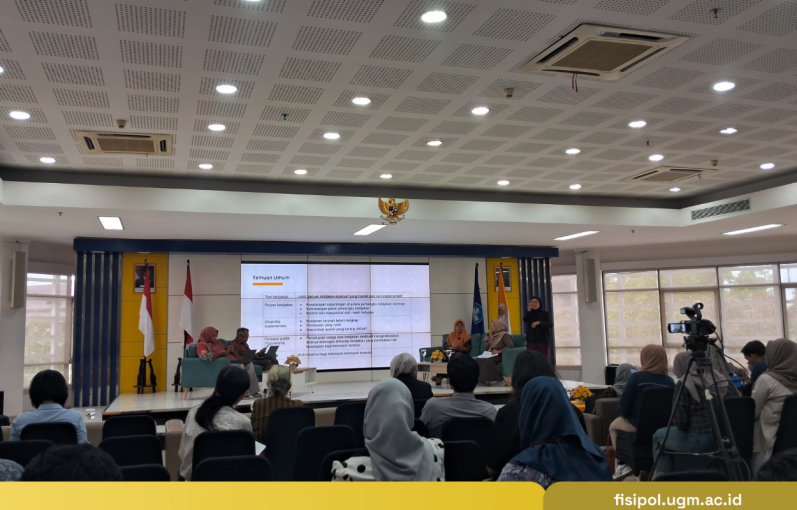
Yogyakarta, October 24th 2024─The Social Inclusion and Democratic Citizenship Study Team of the Faculty of Social and Political Sciences UGM disseminated the results of a research that had been carried out with the title “Exclusive Policy Making in Post-Decentralization Indonesia”. This research dissemination is part of a series of disseminations entitled “Reading Social Inclusion from the Regions”. The research, which has been conducted since 2020, was disseminated in a hybrid manner on Tuesday (22/10) and was attended by various communities that have great attention to issues of social inclusion. This research took place in the cities of Yogyakarta and Makassar as the two locations that can represent the context of different socio-economic and cultural arrangements. In this research, the Social Inclusion and Democratic Citizenship Study Team of the Faculty of Social and Political Sciences of UGM tries to explore policies in Indonesia that still exclude certain groups and the process of formulating these exclusionary policies. In addition, this research also tries to reveal public perceptions of these policies.
Desi Rahmawati, M.A., a lecturer of the Department of Politics and Government of UGM who was also involved in this research revealed that the results of this study show that there are still many people who actually agree to the existence of exclusive policies. In Yogyakarta, for example, surveys and research that have been conducted show that many people know and approve of policies that prohibit Chinese descendants from owning land in Yogyakarta.
Not only that, Desi also shared that social acceptance from the community does not necessarily lead to recognition of political rights. “It seems that many citizens agree with some exclusive policies and acceptance of a group is not always accompanied by recognition of political rights,” she said.
Farid Bambang Siswantoro, M.IP, who is active in disability issues, underlined that this exclusive policy is also inseparable from the continuous marginalization through cultural tools. According to him, there is also a practice of protecting that is actually wrong. “People with disabilities are not allowed to do something because of pity, for example, during the last election there were those who said that children should be represented by their father and mother, that is denying political rights,” he said.
Dr. Ro’fah. M.A., who runs the Center for Disability Services at UIN Sunan Kalijaga, also responded to this research with her experience of the frequent discrepancies between ideals and practices. When she drafted an academic paper that was full of ideal expectations, unfortunately at the time of formulation and implementation it did not match what was expected. “We compiled an academic paper that actually fulfilled rights and other things that were neatly arranged, but when we entered the drafting process there was synchronization that cut for good articles,” she said.
